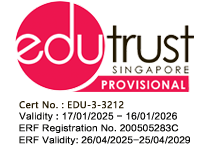
Singapore is commonly known as 'Singa Pura' ('Lion City') or Temasek ('Sea Town').
 The Merlion: A half-fish and half-lion beast, is a fitting symbol of Singapore. The "Singa" or lion represents the animal that a Sumatran prince saw resembling half lion, and half fish. It is a tribute to Singapore`s history as "Temasek", the ancient sea town.
The Merlion: A half-fish and half-lion beast, is a fitting symbol of Singapore. The "Singa" or lion represents the animal that a Sumatran prince saw resembling half lion, and half fish. It is a tribute to Singapore`s history as "Temasek", the ancient sea town.
Total land area: 728.6 square km. (main island with 63 surrounding islets)(Dept of Statistic of Singapore,2021)
Independence Day: 9 August 1965.
Population: Almost 5.64 million (74.1% Chinese, 13.6% Malays, 9% Indians and 3.3% of others)(Dept of Statistic of Singapore June 2022)
Four official languages: English, Mandarin, Malay and Tamil.
Main religions: Islam, Taoism, Buddhism, Christianity, Hinduism, Sikhism and Judaism.
National anthem: 'Majulah Singapura'
Symbolism of the National Flag: Red symbolises universal brotherhood and equality of man while white signifies purity and virtue. The crescent moon represents a young nation on the rise and the five stars signify the ideals of democracy, peace, progress, justice and equality.
National flower: Vanda Miss Joaquim (was first discovered in 1893 by Agnes Joaquim, an Armenian).
Currency: Singapore dollars.
Economy: The island state, though small in size and population, (almost 5.64 Million people) has become a reputable financial centre, a key regional trading centre, has the world's busiest port, and a top location for investment. Often cited as a model for transparency, efficiency and political stability, Singapore has earned the reputation of being one of top ten less corrupt countries of the world, as of February 2018.
Infrastructure and Accessibility: Singapore is well connected via sea, air and telecommunications to all parts of the world. Singapore's Changi Airport serves more than 100 airlines which fly to over 400 cities in about 100 countries and territories all over the world. It has been acclaimed as best airport in the world for the sixth consecutive year in March 2018.
Geographical location: It is 136.8 km north of the equator, between longitudes 103 degrees 38′ E and 104 degrees 06′ E. Located at one of the crossroads of the world, Singapore's strategic position has helped it grow into a major centre for trade, communications and tourism.
Relevant Singapore Laws
Littering: Singapore has very strict laws against littering with heavy fines and corrective work order for repeat offenders.
Chewing Gum: Simply banned!
Smoking: Smokers under 21 years old will get a hefty fine.
Pornography: Pornography is illegal.
Theft & Shoplifting: Shoplifting and theft are considered serious offences.
Drugs: Severe penalties are imposed on drug offenders.
Alcohol/Drunkenness: Purchase and consumption of alcohol is prohibited to those below 18 years of age.
Driving/Car Theft: Legal driving age is 18.
Piracy: It is an offence to import pirated material; offenders may either be fined or jailed.
Racism: Racial insults are considered a crime.
Employment: Student Pass holders are strictly not allowed to engage in any form of employment, whether paid or unpaid, or in any business, profession or occupation in Singapore. Violators will be prosecuted. (For more details, please refer to websites: www.mom.gov.sg; www.ica.gov.sg; www.mha.gov.sg)
Climate
The island is warm and humid all year round, with slight temperature variations between the average maximum of 31 degrees Celsius and minimum of 23 degrees Celsius.
People
Culture and religion remain entwined in Singapore. Throughout the year, a constant stream of festivals and celebrations is held in the streets and temples and reflects the diverse beliefs and backgrounds of this multicultural society, comprising Buddhists, Taoists, Muslims, Hindus, Christians and Sikhs.
Cost of Living
The standard of living in Singapore is amongst the highest in Asia. Compared to countries in western continents, the cost of living is relatively low, and basic items like food and clothing are very reasonably priced.
When planning one`s budget, the following items are to be considered:
- Accommodation
- Utilities
- Food
- Transport
- Clothing
- Telecommunications
- Books & Stationery
- Medical/Hospitalisation Insurance
- Personal Expenses
- Utilities
An international student in Singapore spends on average S$750 to S$2,000 a month on living expenses. This amount varies depending on your individual lifestyle and course of study.
These estimated cost ranges in the table below give a rough guide of the basic expenditure an international student may incur per month.
To know more about the exchange rates based in your home currency, please visit: https://www.oanda.com/currency/converter/.
Transport
Traveling in Singapore is both easy and economical. There is an efficient public transportation network, which offers taxis, buses, and the modern Mass Rapid Transit (MRT) rail system. With its excellent public transport system, Singapore is undoubtedly the easiest city in Asia to get around.
Food
Eating is a national pastime in Singapore. Furthermore, with the variety of places to enjoy this pastime, it is no surprise at all if the phrase "eat to your heart's content" had originated from Singapore.
Malay, Chinese, Indonesian, Peranakan, Indian, Thai, Japanese, Korean cuisine, and more compete with one another in the "battle of the taste buds"!
Additional Information:
Drinking Water
It is perfectly safe to drink water straight from the tap in Singapore. However, for those who prefer bottled mineral water, local supermarkets and groceries always have ample stock.
Electricity
The electrical current in Singapore is 240 volts AC, 50 cycles per second. Singapore uses the square-shaped three-pin plug. You may need an adapter or transformer for foreign appliances, which are available at most hardware/electrical stores.